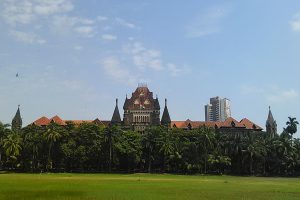Bombay High Court: G.S. Kulkarni, J., while making certain significant observations stated that,
An educational institute certainly contributes in creating ideal citizens. Human virtues and morals can never remain the same. It is thus more important that an endeavour of an educational institution should be to impart such education, so that the basic human values and good virtues are inculcated in the students, to make them ideal citizens.
Whether our educational institutions are so weak that they would fear that the students would get adversely affected, if there is a restaurant having a liquor licence in the vicinity of their schools, is an issue falling for consideration in the instant case.
It was stated that respondent 3 was holding an FL-III licence which was initially granted to him for his hotel namely Hotel Moonlight. Respondent 1 had applied for transfer of the said licence.
The above-said licence was rejected on the ground that such transfer of the liquor licence cannot be permitted considering the objections which were raised by the petitioners who were running a school in the vicinity of the place where the licence was intended to be transferred and that granting such a transfer would lead to an impending law and order situation.
Respondent 3 aggrieved by the Collector’s order of rejecting his application for transfer of the licence, approached the appellate authority.
Appellate authority considering the provisions of the rules observed that the distance from the educational institution and respondent 3’s premises was 144 meters from the nearest gate, by which ordinarily a pedestrian would take the nearest path to reach. It was also observed that the Collector had in fact considered that the distance from the main gate of the educational institution of the petitioners to the premises of respondent 3 was mentioned as 450 meters and that for a functioning FL-III licence, the required distance was 375 meters. It was observed that there was no assessment or any material from the police department that there might be a law and order situation.
Appellate Authority allowed the shifting/transfer of the said licence.
Petitioners being aggrieved filed a revision before the State Excise Department under Section 138 of the Maharashtra Prohibition Act, 1949. But revisional authority on noting the distance dismissed the petitioner’s application.
Analysis, Law and Decision
Bench noted that the Collector had rejected the transfer application only on the basis of ‘law and order’ situation and considering the representations made by the member of the parliament and other MLAs.
In Court’s opinion, the above-stated rules were completely outside the purview of the rules as also were unsupported by any materials on record.
The said reasons were given under political pressure, whereas the appellate authority did not succumb to any political pressure and gave a reasoned order.
Court found substance in the contention raised on behalf of respondent 2 that the appellate authority as also the revisional authority have taken into consideration the report which was undisputed to consider that the distance between petitioners’ educational institution and the premises of respondent 3 where the licence was sought to be transferred was as per the requirement under the said rules.
Rule 45(1)(c) provides that the distance to be maintained should be upto 75 meters and that the licence be not granted within 75 meters of any educational or religious institution inter-alia the educational institution of the petitioners.
High Court stated that the petitioner’s institution ought not to have formed such opinion that the education being imparted by their educational institution was so fragile that the students would get easily influenced by a restaurant serving liquor in the vicinity. This is for two-fold reasons:
- Firstly, this educational institution was never bothered about a similar restaurant having a liquor licence functioning in the vicinity since the last 10 to 12 years.
- Secondly and most importantly, if the quality of learning and inculcation of moral values in the children is to be of a standard, as what the ‘Father of the Nation’ intended to imbibe in our citizens, then the petitioner’s institution ought not to have worried at all, about any student being adversely affected, by any such place in the vicinity of the school.
Further, Court observed that it would be imperative for educational institutions to create students with strong moral values so as to prepare them to face tougher journeys and challenges in life.
In view of the above, petition was rejected. [Devram Sawleram Mundhe v. State of Maharashtra, 2021 SCC OnLine Bom 3416, decided on 12-10-2021]
Advocates before the Court:
P.N. Joshi i/b. Milind Deshmukh for Petitioners.
P.P. Kakade, GP with C.D. Mali, AGP for the State.
Moinuddin M.Khan i/b. M. Khan for Respondent 3.

